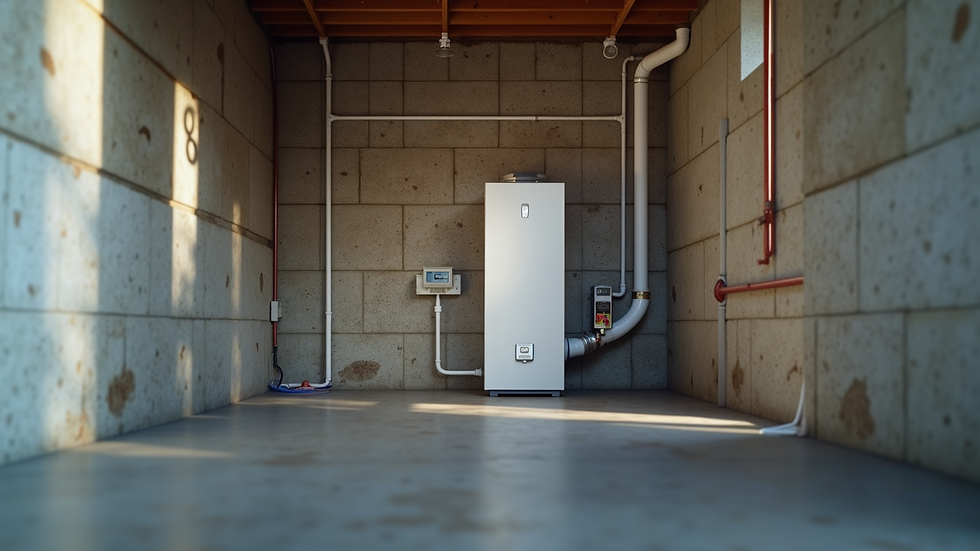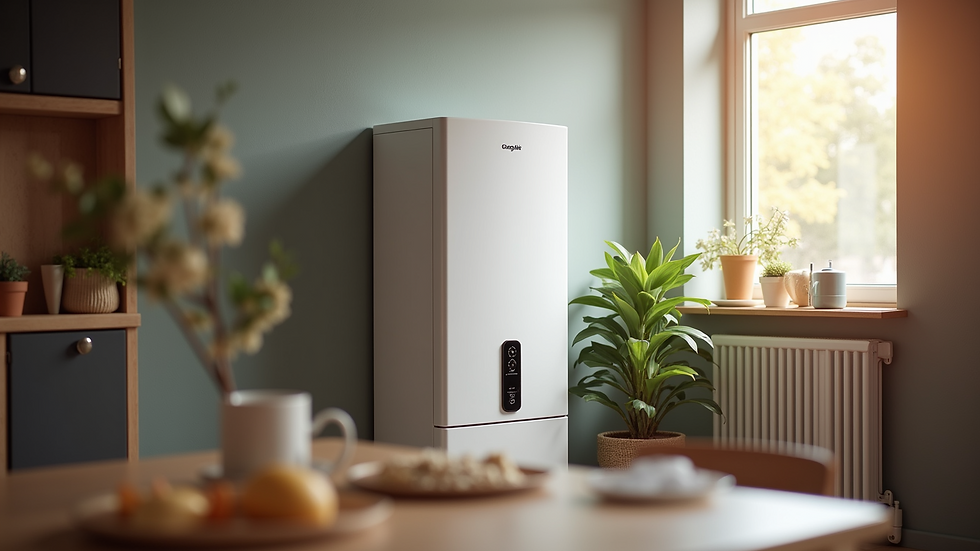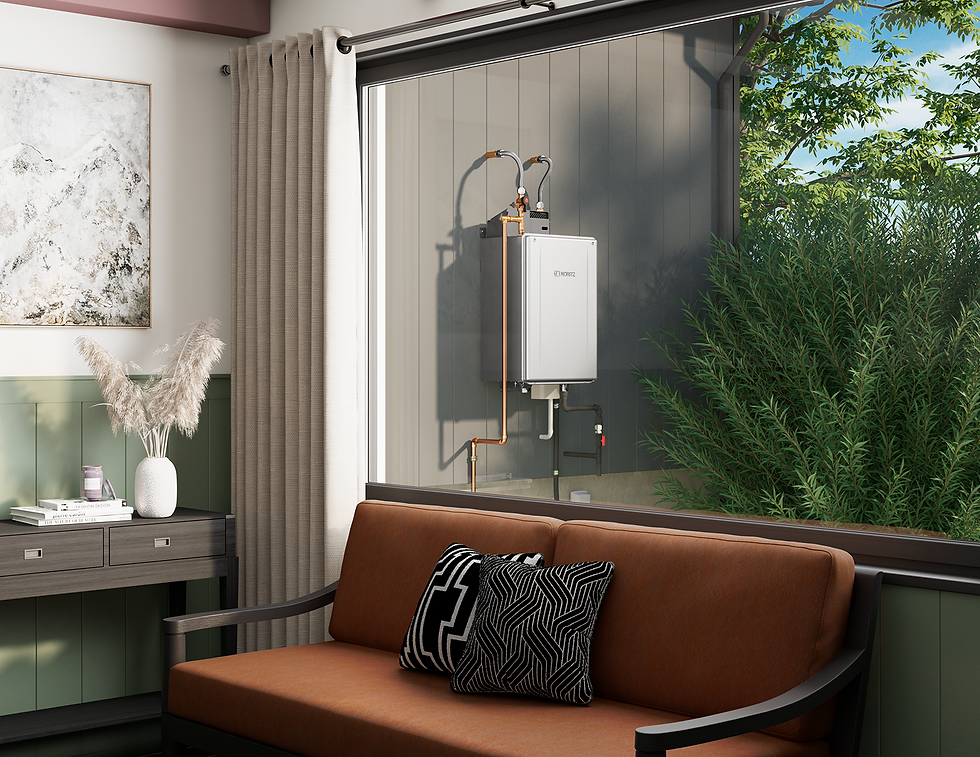Discover Energy Savings with Heat Pump Water Heater Installations
- Manny Garcia
- Aug 20, 2025
- 4 min read
Are you looking to cut down your energy bills while simultaneously reducing your carbon footprint? One effective solution is the installation of heat pump water heaters. These innovative appliances can offer significant energy savings and improve your home's overall efficiency. In this post, we’ll dive deep into heat pump water heaters, their benefits, installation requirements, and how they can revolutionize your hot water usage.

Understanding Energy-Efficient Water Heaters
Energy-efficient water heaters, particularly heat pump water heaters, are designed to maximize energy savings by utilizing a renewable energy source. Unlike traditional electric or gas water heaters, which generate heat directly, heat pump water heaters transfer heat from the air to heat the water. This method can reduce energy consumption by up to 60%, making these systems an appealing option for homeowners.
According to the U.S. Department of Energy (DOE), you can save anywhere between $300 to $500 annually with heat pump water heaters. This drastic reduction in energy use is particularly beneficial given the rising costs of utilities across the country. Moreover, with ongoing incentives and rebates available, the initial investment in such systems can often pay for itself quickly.

Benefits of Heat Pump Water Heaters
The benefits of installing a heat pump water heater are numerous:
Significant Energy Savings: As mentioned, these units use up to 60% less energy. This not only translates to lower utility bills but also less environmental impact.
Long Lifespan: Heat pump water heaters typically have a longer lifespan than traditional water heaters, lasting around 15 years or more. This means fewer replacements and maintenance costs in the long run.
Low Operating Costs: The maintenance costs are relatively low, as these systems have fewer moving parts compared to traditional units.
Eco-Friendly: By consuming less electricity and relying on renewables, they contribute to a significant reduction in your home's carbon emissions.
Versatile Design: Heat pump water heaters can be installed in various locations, including garages and basements, as they do not require direct sunlight like solar heaters.
In addition to these benefits, many local governments and energy companies offer rebates and incentives, making the switch to a heat pump water heater even more attractive.
What is Required to Install a Heat Pump Water Heater?
To take full advantage of the benefits of a heat pump water heater, it’s essential to understand what is required for a successful installation. Here are the key components to consider:
Space Consideration: Heat pump water heaters need adequate space for air circulation and should ideally be placed in a location where the ambient temperatures remain between 40-90 degrees Fahrenheit. A garage or basement usually works well.
Electrical Support: Most heat pump water heaters require a dedicated electrical circuit. Make sure your home’s electrical system can support this requirement.
Drainage System: The unit may require a drain for excess condensation that is produced during operation. Ensuring proper drainage is crucial.
Local Codes and Regulations: Always check with your local building codes and requirements. Some areas have specific regulations regarding installation, particularly in relation to exhaust fans and electrical connections.
Professional Installation: It is highly recommended to hire professionals for the installation of heat pump water heaters. A qualified technician can ensure your system is set up according to safety regulations and operates efficiently.
By addressing these requirements upfront, you can enjoy a smooth installation process and maximize the benefits of your new heat pump water heater.

Cost of Installation and Long-Term Savings
The installation cost of a heat pump water heater may seem higher than traditional systems, typically ranging from $1,000 to $3,000, depending on various factors, including brand and complexity of installation. However, the initial investment pays off in the long run.
By analyzing the long-term savings, you can expect to recoup your investment within three to five years, depending on your usage and local energy rates. Additionally, consider the reduced environmental impact, which is an equally compelling reason to make the switch.
Moreover, there are often local or federal rebates for energy-saving appliances. Check with local utility providers and government sites to see what programs are available.
Making the Switch Today
If you're ready to start saving and reduce your carbon footprint, considering a heat pump water heater installation could be one of the best decisions you make for your home.
Incorporating these systems not only puts you ahead in terms of energy efficiency but also enhances your property value.
When choosing a model, opt for those with a high Energy Factor (EF) rating, which indicates the unit's efficiency. Look for user-friendly features such as smart technology and warranty options, as these can provide added benefits and peace of mind.
Final Thoughts on Energy Savings
Switching to a heat pump water heater is more than just an upgrade; it’s a step towards a more sustainable lifestyle. With the ability to save substantial money on energy bills, the eco-friendly nature of these systems, and available financial incentives, now is a perfect time to consider this smart investment.
Whether you are replacing an old unit or building a new home, heat pump water heaters offer versatile options to meet your hot water needs efficiently. So take that next step toward energy savings and explore the world of energy-efficient water heaters today.




Comments